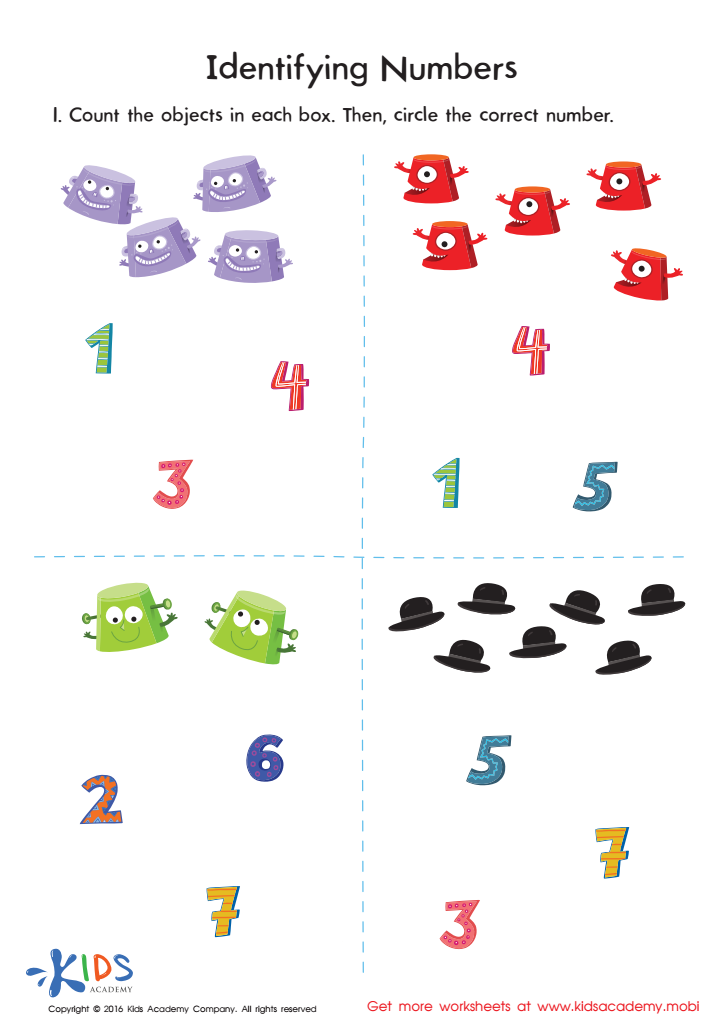Counting skills Extra Challenge Matching Worksheets for 4-Year-Olds
5 filtered results
-
From - To
Enhance your 4-year-old's counting skills with our engaging Counting Skills Extra Challenge Matching Worksheets! Designed to foster early numeracy, these worksheets challenge preschoolers to match numbers and quantities through fun, interactive activities. Children will enjoy connecting dots, pairing visuals, and solving simple puzzles, making learning a delightful experience. As they progress, kids will not only master counting but also develop critical thinking through matching exercises. Perfect for home or classroom use, these worksheets provide an excellent opportunity for young learners to practice and reinforce their understanding of numbers in an enjoyable way. Download and watch your child's confidence in counting soar!
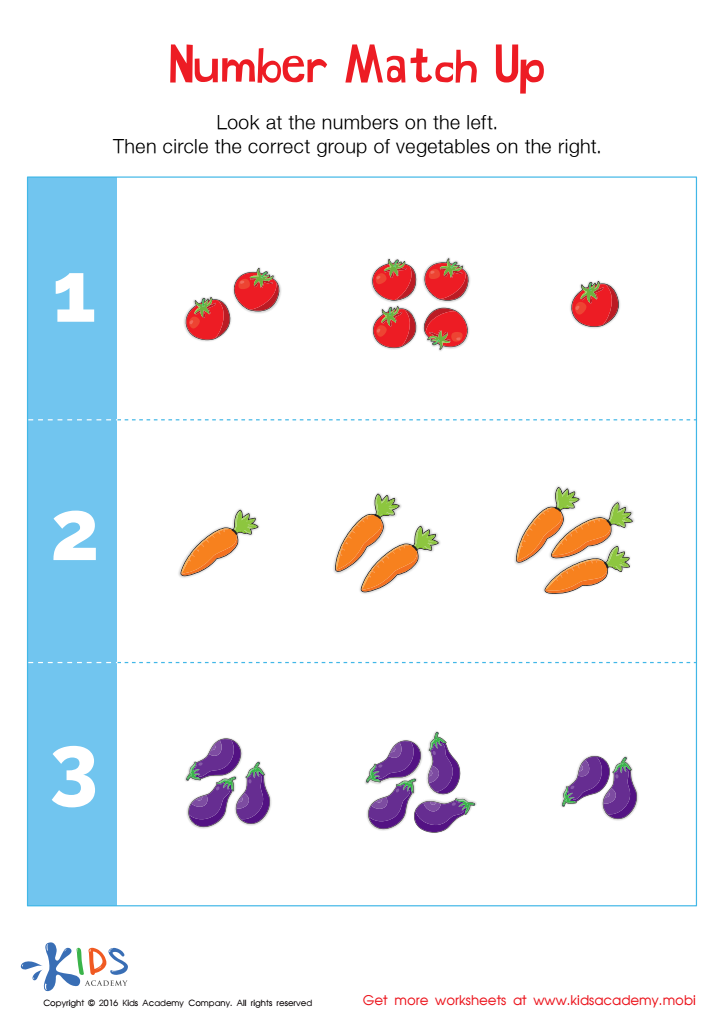

Number Match Up Worksheet
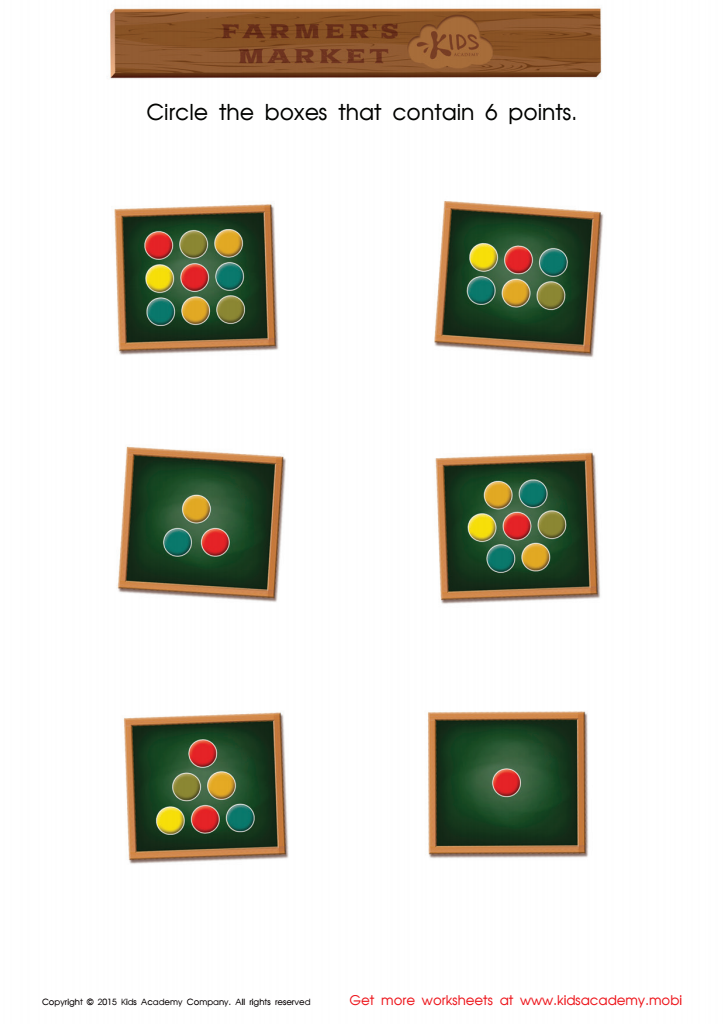

Count and Match Points 6 Math Worksheet
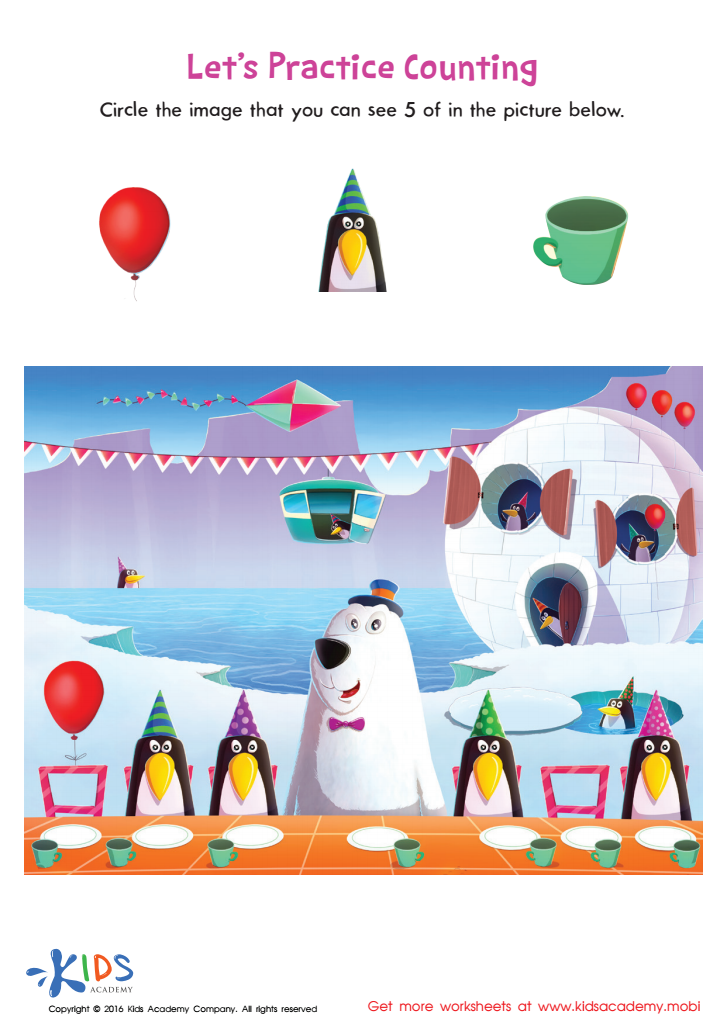

Counting Worksheet: Let's Practice Counting
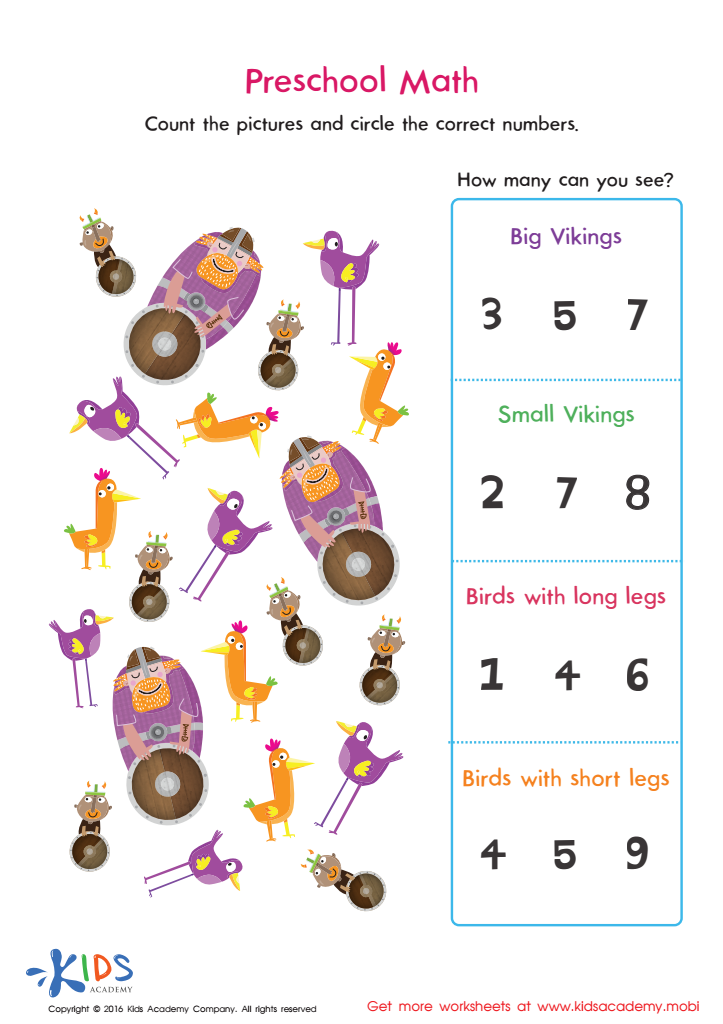

Counting skills are fundamental to a child’s early development, laying the groundwork for future mathematical understanding. For 4-year-olds, engaging in activities like "Counting Skills Extra Challenge Matching" can significantly enhance their numerical recognition and one-to-one correspondence. This kind of interactive play not only makes learning enjoyable but also reinforces critical thinking and problem-solving skills.
Parents and teachers should care about these counting skills because they are essential in fostering a child’s cognitive growth. Mastery of counting aids in understanding more complex concepts, such as addition and subtraction, which are crucial as they advance in their education. Additionally, strong counting skills contribute to better performance in various subjects, as mathematics often intersects with science and even language arts.
Moreover, early exposure to these activities supports social skills, as children learn to share, take turns, and cooperate with others during games. Investing time in developing counting abilities promotes a child’s confidence, helping them become enthusiastic learners. Therefore, integrating fun challenges into the learning environment not only supports academic achievement but also nurtures a love for learning that can last a lifetime. Ultimately, encouraging counting skills benefits the child both personally and academically, making it a priority for caregivers.
 Assign to My Students
Assign to My Students

